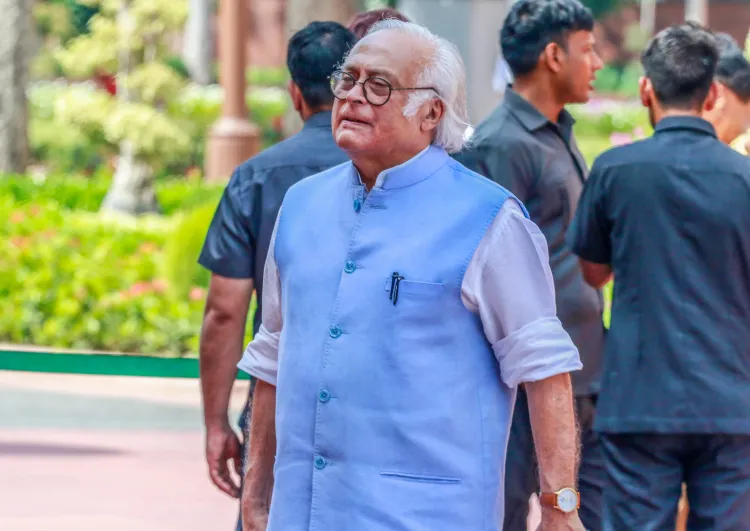Did Congress Achieve a Major Win with Supreme Court's Stay on Waqf Act Provisions?

Synopsis
Key Takeaways
- Supreme Court stays provisions of Waqf (Amendment) Act.
- Congress welcomes the ruling as a victory for constitutional values.
- Ruling protects existing Waqf properties from challenges.
- Requirement of proof as a Muslim for five years is suspended.
- Justice Gavai and Justice Masih led the bench that issued the ruling.
New Delhi, Sep 15 (NationPress) The Congress party expressed its approval on Monday regarding the Supreme Court's interim ruling that halts certain provisions of the Waqf (Amendment) Act, labeling it a “significant victory” for the core constitutional principles of justice, equality, and fraternity.
Jairam Ramesh, Congress MP and General Secretary in charge of communications, remarked, “This order is pivotal as it significantly counters the underlying malicious intents of the original statute.”
In a post on X, Ramesh emphasized, “The Supreme Court's ruling today on the Waqf (Amendment) Act, 2025 signifies a remarkable victory not only for the opposition parties in Parliament but also for the members of the Joint Parliamentary Committee who presented extensive dissent notes that were previously overlooked but are now validated.”
Ramesh pointed out the provisions of the Act that were stayed by the Supreme Court, stating that the aim of these Sections was clear - to incite the voter base and construct an administrative framework for those wishing to instigate religious conflicts.
He added, “We regard this order as a triumph for the fundamental constitutional values of justice, equality, and fraternity.”
The Congress MP noted, “The legal representatives for the opposition had contended that this law would create a situation where anyone could contest property statuses before the Collector, leading to uncertainties regarding property status during such litigations. Moreover, only a practicing 'Muslim' for five years could contribute to a Waqf.”
Emphasizing the vital points of the apex court's order, Ramesh stated that the Supreme Court restricted the powers of the Collector; safeguarded existing Waqf properties from questionable challenges, and suspended the requirement of proof of being a Muslim for five years until regulations are established.
Earlier today, a Supreme Court Bench featuring Chief Justice B.R. Gavai and Justice A.G. Masih opted not to suspend the Waqf Act entirely, highlighting that statutes are presumed constitutional and can only be stayed in exceptional circumstances.










